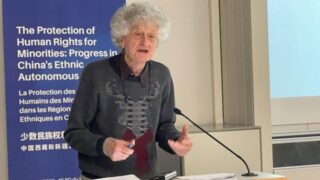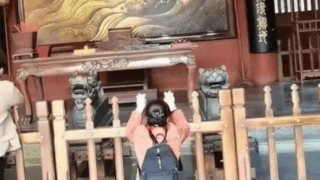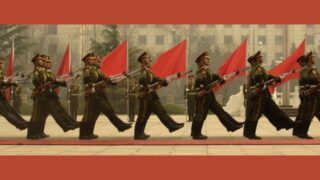Authorities are intensifying strict control over online activity, resulting in people being suppressed and punished for saying anything remotely critical of CCP.

It’s a typical dictator: Controlling their public image so much that he or she starts to regulate what’s said online and, if negative, censor it.
Count China’s Xi Jinping among those dictators.
Ever since he came to power in 2012, regulation of online activity and censorship of public discourse has become increasingly strict and harsh in China. Any remarks that ridicule or criticize China’s state leaders will be blocked immediately. Netizens who post such content could be taken away, convicted and punished at any time.
Dissident Ling Zhi, from Shenyang city in northeastern Liaoning Province, posted remarks online criticizing Xi Jinping for spreading money all over the world while disregarding the grim reality of China’s vast impoverished population and the lives of the Chinese people. Lo and behold, late one night in December 2018, police hauled him out of his home and interrogated him for more than three hours.
This wasn’t the first time Ling Zhi had gotten into trouble for his online presence. He has been interrogated by police multiple times for dissenting with Chinese Community Party (CCP) opinions and for being openly critical of Mao Zedong and Xi Jinping.
Consequently, his Weibo, WeChat, QQ and other social networking accounts have also been repeatedly blocked.
In 2017, during a politically sensitive period – before the 19th National Congress in October 2017 – the authorities were afraid that Ling Zhi would post remarks online unfavorable to the CCP, so they confiscated all of his means of communication: two computers and two mobile phones.
It’s a gross clampdown on freedom of speech, proving that in China, it’s on the steep decline.
Xin Hui (pseudonym), a miner from Xinzhou city in Shanxi Province in North China, was also convicted for posting remarks online. He was detained for “education” on the grounds that he violated administrative law because the content of a WeChat message touched on “sensitive information.”
“In today’s world, the state forcibly occupies villagers’ land and only gives the people 1,000 RMB (about $148). Is that enough to live?” read a September 20, 2018, message in Xin Hui’s WeChat group.
Xin Hui replied: “When did Emperor Xi ever care about the life and death of ordinary people?”
Three days later, three plainclothes police officers came for Xin Hui, and, without showing any documentation, took him to the local police station. The police repeatedly questioned him about his reason for posting such remarks online and did background research to see whether Xin Hui had a prior criminal record. Ultimately, he was detained by police for 20 days on the grounds that he violated administrative law.
While in custody, Xin Hui had to attend classes every day to undergo “ideological transformation” about “how to defend the CCP, and not to make remarks on WeChat that are unfavorable toward the CCP.”
Reported by Chen Jinsheng









